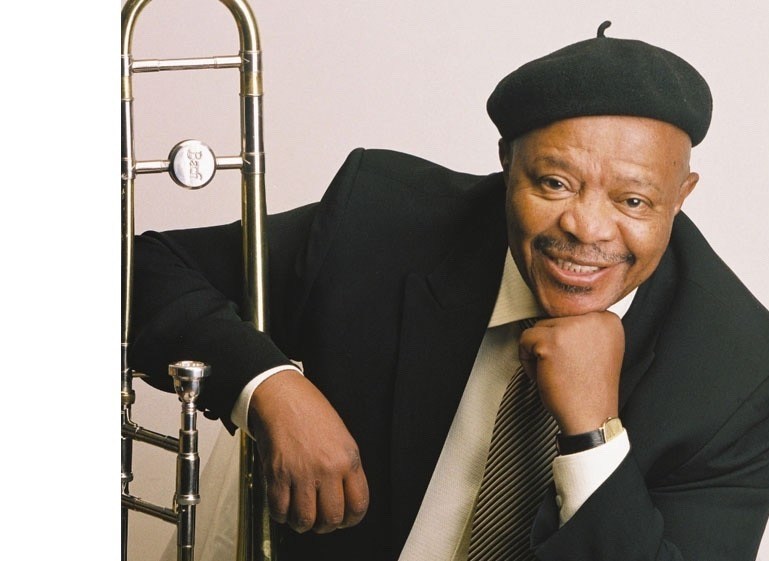

Tributes are pouring in for South Africa’s Oscar-nominated anti-apartheid jazz trombonist and composer Jonas Gwangwa, who has died at the age of 83.
With driving music that fired up Black South Africans’ resistance to repressive white minority rule, Gwangwa left the country rather than submit to apartheid censorship. Other prominent exiled South African musicians included Hugh Masekela, Abdullah Ibrahim and Miriam Makeba.
“Jonas Gwangwa ascends to our great orchestra of musical ancestors whose creative genius and dedication to the freedom of all South Africans inspired millions in our country and mobilized the international community against the apartheid system,” President Cyril Ramaphosa said in a tribute.
So potent was Gwangwa’s musical activism that his home was bombed by apartheid forces in 1985, but he survived, Ramaphosa said in his tribute.
Raised in Johannesburg’s Soweto township, Gwangwa rose to prominence in 1959 as a member of the Jazz Epistles, a group that included Masekela and Ibrahim. When the apartheid regime imposed a state of emergency in 1960, it restricted jazz performances which were viewed as promoting racial equality.
Gwangwa was awarded the Order of Ikhamanga, South Africa’s highest honor for outstanding contribution in arts and culture, in 2010.
He was nominated for an Oscar for music he composed for the 1987 movie “Cry Freedom,” which starred Denzel Washington and Kevin Kline.
Gwangwa’s death fell on the anniversary of the deaths of his friends and fellow African music giants Masekela and Zimbabwean musician Oliver Mtukudzi, who died in 2018 and 2019 respectively.